This week’s anatomy is the anterior nasal spine which is found in the midline at the floor of the nasal cavity as a bony protuberance where the right and left maxilla meet (as seen on the skull below – orange arrow).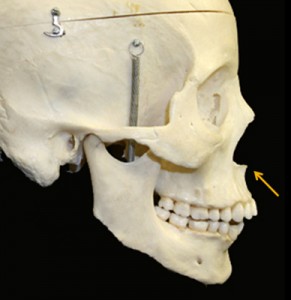 On radiographs, this will appear as an inverted triangle or V shaped radiopaque entity in the midline apical to the maxillary central incisors. The V shape borders are continuous with the floor of the nasal cavity. It is more commonly seen on intraoral radiographs. On pantomographs, the soft tissue of the nose and oropharynx frequently are superimoposed making detection difficult. Check out the examples below.
On radiographs, this will appear as an inverted triangle or V shaped radiopaque entity in the midline apical to the maxillary central incisors. The V shape borders are continuous with the floor of the nasal cavity. It is more commonly seen on intraoral radiographs. On pantomographs, the soft tissue of the nose and oropharynx frequently are superimoposed making detection difficult. Check out the examples below.
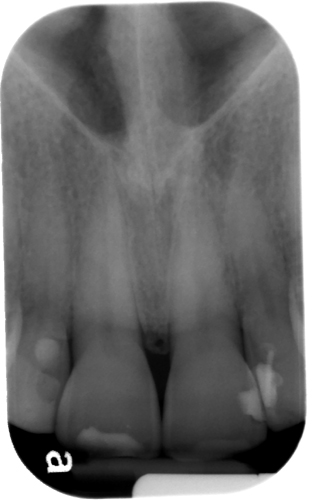
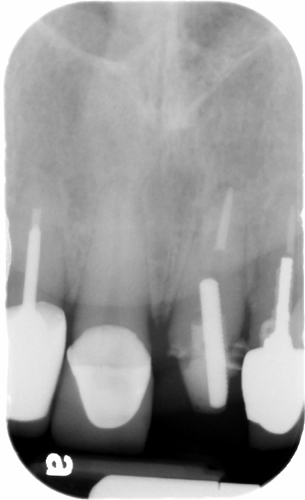 If you have any questions or comments, please leave them below. Thanks and enjoy!
If you have any questions or comments, please leave them below. Thanks and enjoy!

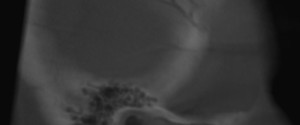
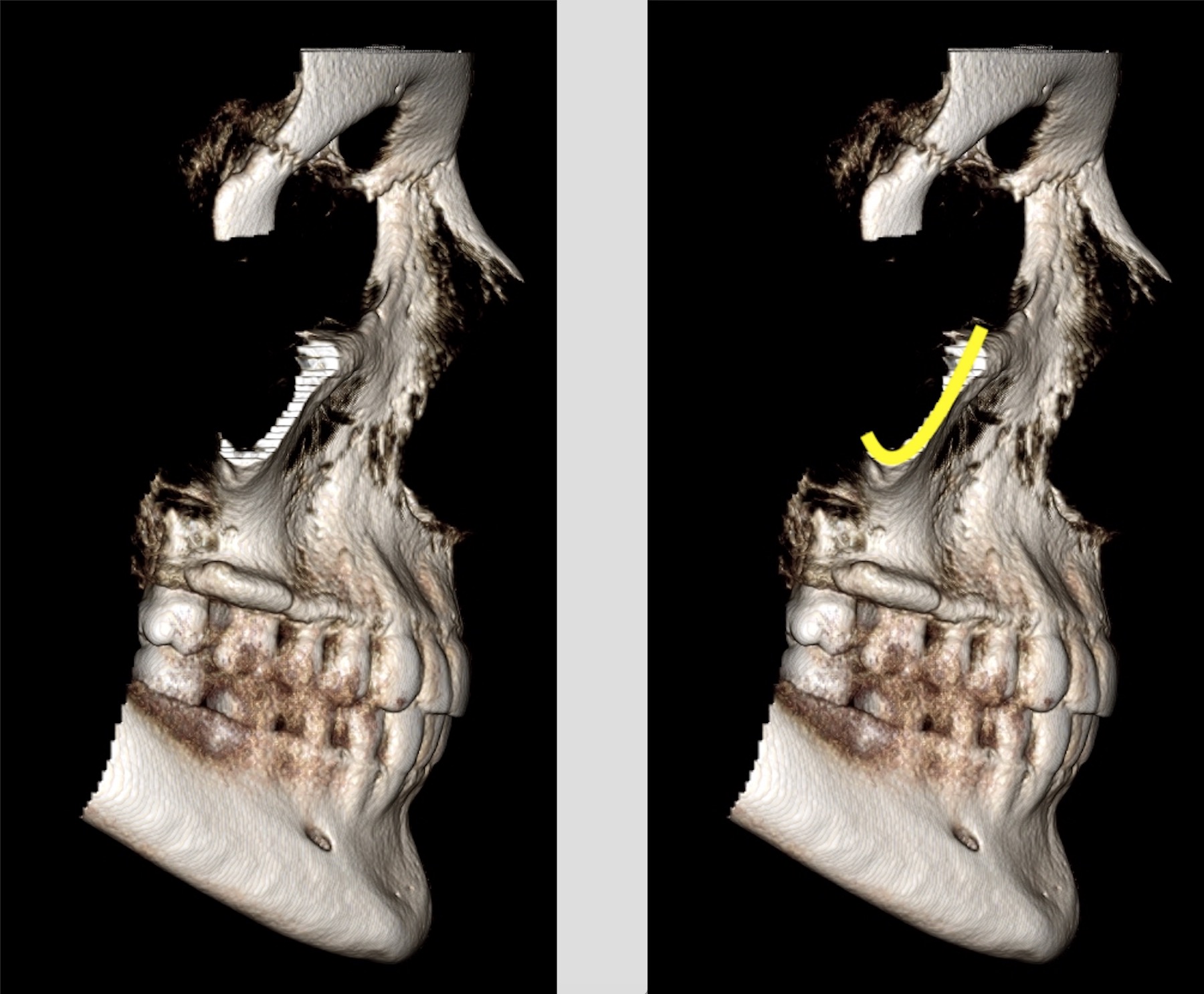
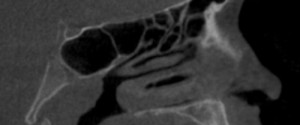
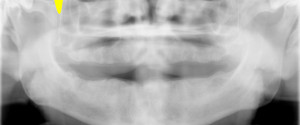
Hello, can the spike be shifted by torsion from a divated septum or broken nose? My septum is badly shifted and what appears to be the spike pushed far to one side, so much so that my front tooth has shifted slightly as well. If so who is best to discuss this with as I’ve seen a host of specialists.
Also could related pressure affect the ear and or surroundinf lymphs? Thx
The anterior nasal spine could be broken and heal in a position that is off-center. The nasal septum may be deviated due to normal anatomical variations or from a prior fracture (aka broken nose). I am unaware of any research as to how this would effect the adjacent teeth and position in the oral cavity. If it is mispositioned there area a few people you could discuss this with – an ear, nose and throat physician to discuss whether this may effect any breathing issues, a plastic surgeon if you are concerned about the physical appearance, and lastly a dentist about the position of your tooth and discuss options to correct this.
As for any effect on the ear and surrounding lymph nodes from the anterior nasal spine this would be unlikely as they are not directly connected. I hope this helps you on your path. Thanks for asking. 🙂
I think you should add an arrow pointing to the structure. Thanks, amazing entries here 🙂
Thanks for the tip. I’ll work on using more arrows to help point out anatomy down the road. 🙂
whats its function and clinical significance? ty
I would have to refer you to an anatomy instructor as I don’t know. 🙂